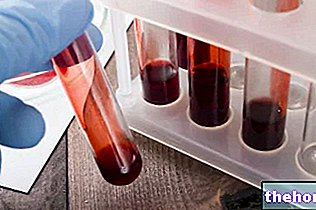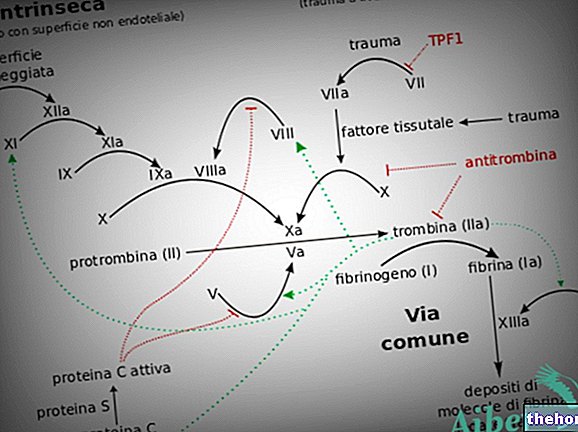Generality
Cholinesterase is an enzyme that hydrolyzes acetylcholine and other choline esters.
- Its serum concentration increases in various pathologies, including acute and chronic liver disease, diabetes, hyperthyroidism and nephrotic syndrome.
- A decrease in blood levels of cholinesterase can occur, however, in the case of acute infections, myocardial infarction and liver disease.

What's this
Cholinesterases are enzymes responsible for the hydrolysis of the various choline esters: their activity is therefore important to interrupt the transmission of the nerve impulse coming from cholinergic neurons. To learn more about the topic, see the article dedicated to acetylcholine.
- In plasma, the most abundant cholinesterase is known as pseudocolinesterase, a protein present in various isoforms and also concentrated in the liver, which produces it, and in the glial cells of the nervous system.
- Acetylcholinesterase, also known as cholinesterase vera or acetylcholine hydrolase, prevails at the erythrocyte level (in red blood cells), in muscles, in nervous structures and in the placenta.
The difference between pseudcholinesterase and acetylcholinesterase lies in the substrate preference; while acetylcholinesterase is able to degrade acetylcholine more rapidly, pseudcholinesterase is able to hydrolyze a wider range of choline esters, exhibiting a marked ability degradative towards butyr-choline.
While acetylcholinesterase does not hydrolyze succinylcholine, a muscle relaxant administered by anesthesiologists to achieve rapid paralysis and facilitate the patient's tracheal intubation maneuvers, pseudocolinesterase inactivates it in a few seconds.
Because it is measured
The determination of pseudocolinesterase is a blood test used to evaluate the levels of this enzyme protein, which is also found in the liver, pancreas and some cells of the nervous system.
The pseudcholinesterase assay is used for three main purposes:
- Determine the patient's potential response to succinylcholine before surgery, in order to avoid prolonged apneas in subjects carrying variants of the enzyme (pre-operative screening with dibucaine);
- Identify a suspected intoxication or poisoning;
- Assess liver function.




























